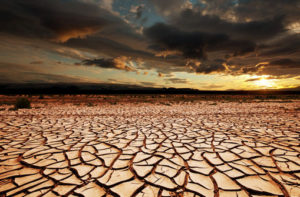Climate Experts advise negotiators to tailor climate solutions
 Some Climate Change experts at a High-Panel Discussion on Demographic Change and Climate Change” forum in Accra, have called on climate negotiators to consider the different demographics existing in countries in addressing the impacts of Climate Change.
Some Climate Change experts at a High-Panel Discussion on Demographic Change and Climate Change” forum in Accra, have called on climate negotiators to consider the different demographics existing in countries in addressing the impacts of Climate Change.
They said since climate change affected different demographics differently, responses would not be the same for all countries, hence, the need to localise policies and actions, and blend them with the local and scientific knowledge to have impact in countries.
Demographic change has become one of the core factors shaping future exposure and vulnerability to environmental and climatic hazards.
Speaking as a panelist at the Discussion on Monday, Dr Benjamin Delali Dovie, Senior Research Fellow, Regional Institute for Population Studies, (RIPS), University of Ghana, said there was the need to factor demographic concerns into adaption mechanisms by targeting policies to address economic change within particular population groups and migration status.
He said the aspects of the population that were vulnerable to environmental stress should be looked at more seriously, while partnerships involving both the private and public sectors should be sought, to reduce population vulnerabilities to increase human security.
Dr Dovie called on countries to make the efforts at integrating global level climate change policy issues into their local or national level planning for better implementation.
He said: “what happens more often is that countries will have global policy frameworks, but do not have any indicators or guidelines that will enable people to own their own above the national and the local level”.
He therefore, called on national governments to help the local level institutions of government to raise funds to implement climate actions, thereby owning such measures they funded.
Dr. Ebenezer F. Amankwaa, a Research Fellow at the United Nations University-Institute for Natural Resources in Africa (UNU-INRA), on his part, emphasised youth migration, and housing, as some of the main issues of climate impacts, and called for the promotion of policies and programmes tailored to the needs of the youth in particular demographics.
Professor Matthias Garschagen of the Inter-governmental Panel on Climate Change (IPCC), and a lead author, Ludwig Maximillian University, Munich, Germany, said the world needed to prepare and embrace opportunities that were emerging from the impact of climate change, by seeking the right partnerships to benefit from such opportunities.
Dr Erich Striessnig of the International Institute for Applied System Analysis, Vienna, Austria, said because young people have much at stake, proactive policies should be adopted by countries, to make the young people more responsible in climate change response measures.
Dr Koko Warner, Manager in charge of Impacts, Vulnerability and Risk Adaptation, United Nations Climate Change Secretariat, Germany, said the forum was to enable practitioners, policy makers and academics to tackle some of the challenges of climate change, vulnerabilities and resilient.
She said Africa had a lot of demographics change and the challenges and solutions to climate change and so the UNFCCC decided to partner the United Nations University Institute for Natural Resources in Africa (UNU-INRA) and the United Nations University Institute for Environment and Human Security (UNU-EHS), in Ghana to host the summer academy to listen to the world leaders on demographic and climate change and how they could be harness to address climate impacts.
The forum, which was aimed at bridging the science-policy gap in ways to contribute to achieving climate resilient sustainable development and advance actionable knowledge also formed part of series of panel discussions on the theme: “Demographic Change and Climate Change”– the nexus and resilient communities”.
About 30 participants from Africa, Asia, Europe, America and Latin America, among others, are attending the forum, which was scheduled for Monday, October 7 and Thursday October 10.
They would on Thursday discussed: the “Changing Demographics in a Dynamic World: Policy, Relevance and Way Forward from the Climate Change Perspective”.
The event is part of the 2019 Summer Academy on “World Risk and Adaption Futures” which brings together 30 young and senior professionals and experts active in the field of Climate Change Adaptation, Disaster Risk Reduction and related fields from across the globe.
The UNU-INRA therefore, hopes to help bridge the science-policy gap in ways to contribute to achieving climate resilient sustainable development and advance actionable knowledge.
The Summer Academy aims to help frame decisions about how to manage climate impacts, vulnerabilities, and risks in ways tailored to the needs of a changing populace.
Source: GNA
